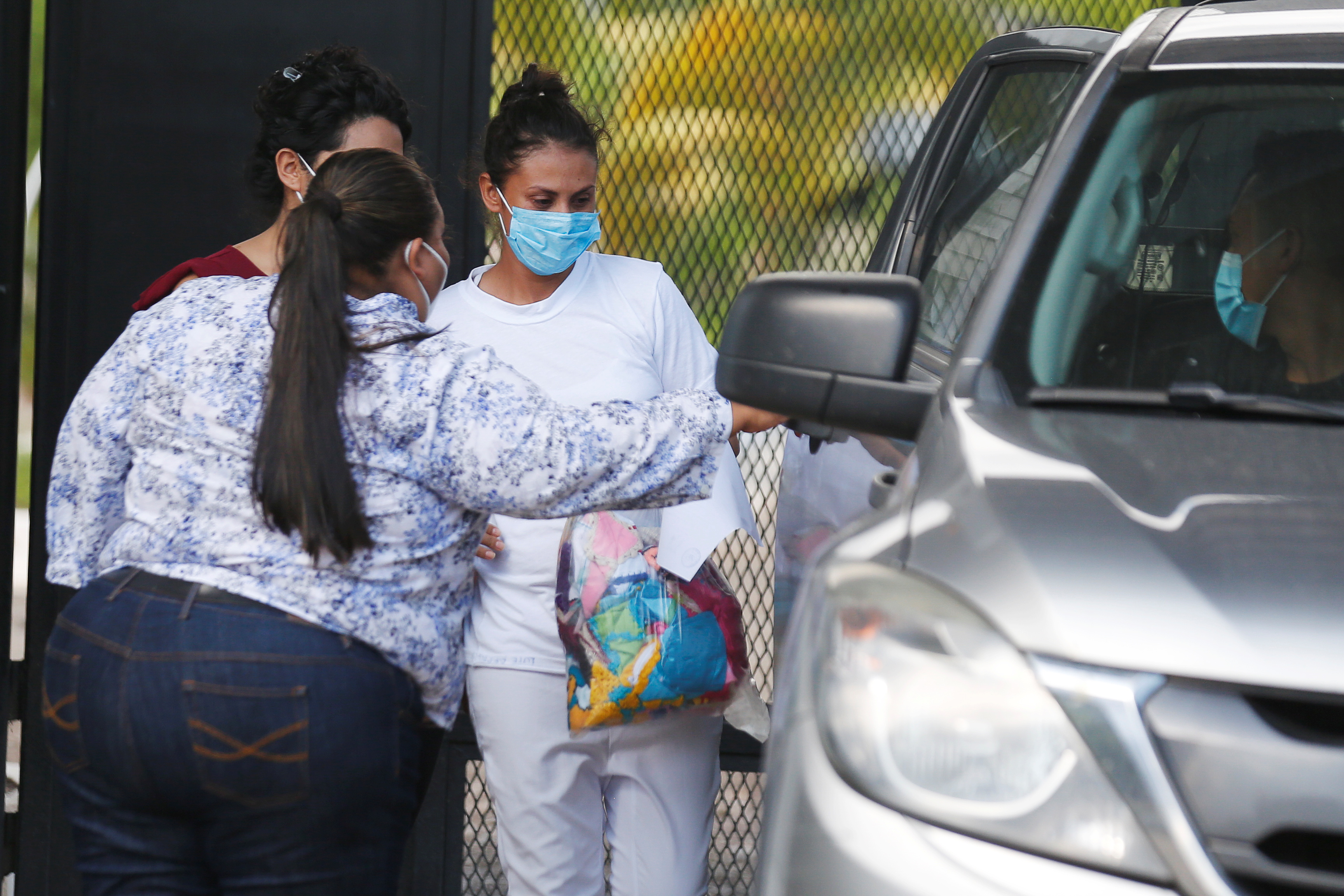
Sara Rogel is embraced by her mother as she is released from jail, in Zacatecoluca, El Salvador, June 7, 2021. /Reuters
Sara Rogel is embraced by her mother as she is released from jail, in Zacatecoluca, El Salvador, June 7, 2021. /Reuters
A Salvadoran woman jailed for 30 years for allegedly ending her pregnancy was released on Monday from prison after spending almost nine years behind bars, activists said.
Dressed in white, Sara Rogel, 28, hugged relatives as she left the women's prison near Zacatecoluca, some 50 kilometers south of the capital San Salvador.
In October 2012, Rogel was eight months pregnant when she slipped and fell while washing clothes. Her family found her lying unconscious and took her to hospital, but authorities detained her on suspicion of having had an abortion.
Rogel was prosecuted and sentenced for killing her unborn daughter under El Salvador's harsh abortion ban, one of the harshest in the world.
Read more: Abortion bans: The women on trial for having a miscarriage
She was initially given a 30-year sentence, but her lawyers later helped reduce the sentence to a decade – which would have seen her released in October 2022.
Rogel's release from jail was initially ordered a week ago, but she was forced to remain in detention until a deadline passed for the Attorney General's office to appeal her release.

Sara Rogel leaves jail in Zacatecoluca, El Salvador, June 7, 2021. /Reuters
Sara Rogel leaves jail in Zacatecoluca, El Salvador, June 7, 2021. /Reuters
"Sara never deserved to be in prison," said feminist activist Morena Herrera. "While in mourning for the heartbreaking loss of her pregnancy, Sara should have been with her family. Instead she was unjustly imprisoned for nine years."
Socially conservative and devoutly Catholic El Salvador bans abortion in all cases, including rape and if the mother's life is at risk, and sentences can range from eight to 50 years in cases of "aggravated homicide."
In recent years some rulings have been reversed, with several women released from jail after serving parts of their long sentences.
Still, women are often prosecuted for stillbirths and abortions induced because of medical emergencies.
(With input from AFP, Reuters)

